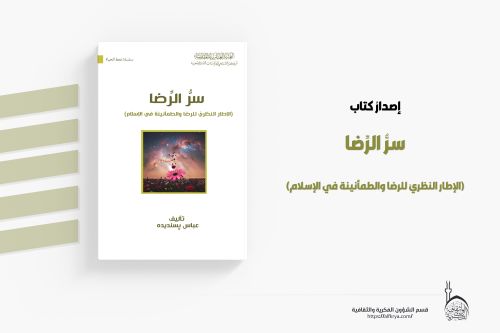

Grammar


Tenses


Present

Present Simple

Present Continuous

Present Perfect

Present Perfect Continuous


Past

Past Continuous

Past Perfect

Past Perfect Continuous

Past Simple


Future

Future Simple

Future Continuous

Future Perfect

Future Perfect Continuous

Passive and Active


Parts Of Speech


Nouns

Countable and uncountable nouns

Verbal nouns

Singular and Plural nouns

Proper nouns

Nouns gender

Nouns definition

Concrete nouns

Abstract nouns

Common nouns

Collective nouns

Definition Of Nouns


Verbs

Stative and dynamic verbs

Finite and nonfinite verbs

To be verbs

Transitive and intransitive verbs

Auxiliary verbs

Modal verbs

Regular and irregular verbs

Action verbs


Adverbs

Relative adverbs

Interrogative adverbs

Adverbs of time

Adverbs of place

Adverbs of reason

Adverbs of quantity

Adverbs of manner

Adverbs of frequency

Adverbs of affirmation


Adjectives

Quantitative adjective

Proper adjective

Possessive adjective

Numeral adjective

Interrogative adjective

Distributive adjective

Descriptive adjective

Demonstrative adjective


Pronouns

Subject pronoun

Relative pronoun

Reflexive pronoun

Reciprocal pronoun

Possessive pronoun

Personal pronoun

Interrogative pronoun

Indefinite pronoun

Emphatic pronoun

Distributive pronoun

Demonstrative pronoun


Pre Position


Preposition by function

Time preposition

Reason preposition

Possession preposition

Place preposition

Phrases preposition

Origin preposition

Measure preposition

Direction preposition

Contrast preposition

Agent preposition


Preposition by construction

Simple preposition

Phrase preposition

Double preposition

Compound preposition


Conjunctions

Subordinating conjunction

Correlative conjunction

Coordinating conjunction

Conjunctive adverbs


Interjections

Express calling interjection


Grammar Rules

Preference

Requests and offers

wishes

Be used to

Some and any

Could have done

Describing people

Giving advices

Possession

Comparative and superlative

Giving Reason

Making Suggestions

Apologizing

Forming questions

Since and for

Directions

Obligation

Adverbials

invitation

Articles

Imaginary condition

Zero conditional

First conditional

Second conditional

Third conditional

Reported speech


Linguistics

Phonetics

Phonology


Semantics


Pragmatics

Linguistics fields

Syntax

Morphology

Semantics

pragmatics

History

Writing

Grammar

Phonetics and Phonology

Semiotics


Reading Comprehension

Elementary

Intermediate

Advanced


Teaching Methods

Teaching Strategies
“Estuary English”
المؤلف:
Ulrike Altendorf and Dominic Watt
المصدر:
A Handbook Of Varieties Of English Phonology
الجزء والصفحة:
185-9
2024-03-07
1171
“Estuary English”
The changes described above are often referred to as being characteristic of Estuary English, a term coined by David Rosewarne in 1984. He defines it as follow:
‘Estuary English’ is a variety of modified regional speech. It is a mixture of non-regional and local Southeastern English pronunciation and intonation. If one imagines a continuum with RP and London speech at either end, ‘Estuary English’ speakers are to be found grouped in the middle ground (Rosewarne 1984: 29).
Since the appearance of Rosewarne’s article, Estuary English has been discussed among laypeople and linguists with increasing frequency and unreduced controversy, although linguists have tended to adopt the term as shorthand rather more sceptically than have the general public. Journalists and literary authors make frequent use of the term to label a number of different and divergent trends. For example:
(1) socio-phonetic changes within the accents of Southeastern England in the direction of a supra-local regional accent.
(2) the social spread of London working-class variants into higher social classes, including the advanced version of RP.
(3) the situation-related use of London working-class variants by speakers who are otherwise speakers of RP.
(4) the retention of Southeastern regional accent features by speakers who would otherwise have been expected to become speakers of adoptive RP.
(5) the occurrence of variants which are (rightly or wrongly) associated with the Southeastern England in accents in which they were not used before.
The existence of these developments, with the exception of (5), is not disputed by linguists; what they dispute is the practice (a) of subsuming all these developments under the same name, (b) of choosing a new name to describe them, and (c) of choosing the particular name ‘Estuary English’. With regard to the choice of name, Trudgill (1999) remarks:
This [Estuary English] is an inappropriate term which [...] has become widely accepted. It is inappropriate because it suggests that we are talking about a new variety, which we are not; and because it suggests that this is a variety of English confined to the banks of the Thames Estuary, which it is not. (Trudgill (1999: 80)
With regard to choosing a new name, Wells (1997) remarks:
Estuary English is a new name. But it is not a new phenomenon. It is the continuation of a trend that has been going on for five hundred years or more – the tendency for features of popular London speech to spread out geographically (to other parts of the country) and socially (to higher social classes). (Wells 1997: 47)
Here, Wells touches on one of the central aspects of the Estuary English controversy. To the layperson, the situation has changed in such a way (and/or is brought to his/her attention in such a way) that it is perceived as a new phenomenon requiring a new name. For the linguist, on the other hand, the current linguistic situation is just another phase within a longer historical process which does not merit a distinct designation, at least no more so than any other phase in the development of any particular accent.















 قسم الشؤون الفكرية يصدر مجموعة قصصية بعنوان (قلوب بلا مأوى)
قسم الشؤون الفكرية يصدر مجموعة قصصية بعنوان (قلوب بلا مأوى) قسم الشؤون الفكرية يصدر مجموعة قصصية بعنوان (قلوب بلا مأوى)
قسم الشؤون الفكرية يصدر مجموعة قصصية بعنوان (قلوب بلا مأوى) قسم الشؤون الفكرية يصدر كتاب (سر الرضا) ضمن سلسلة (نمط الحياة)
قسم الشؤون الفكرية يصدر كتاب (سر الرضا) ضمن سلسلة (نمط الحياة)

















